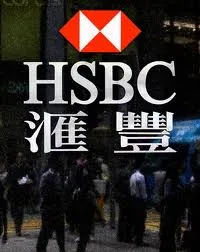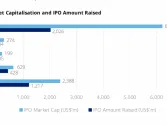
Is Hong Kong’s banking sector in trouble?
The Royal Bank of Scotland says there is risk of a financial crisis after an extended period of ultra-loose monetary conditions in Hong Kong.
However, this may not be the case as it has enough fiscal reserves which can be drawn upon in times of trouble.
Here’s more from RSBM:
| Monetary conditions in Hong Kong have been ultra-loose for an extended period. The difference between the real growth rate and the real interest rate should be negative in equilibrium, because people face unlimited incentives for leverage when the return on investment or the real growth rate exceeds the costs of financing or the real interest rate. Currently, investment returns exceed financing costs by 6 percentage points. The last time that monetary conditions were this loose was in the early 1990s. When monetary conditions eventually reversed during the Asian crisis, banks experienced a liquidity crunch and nonperforming loans soared from 2% to 10%. Looking at higher frequency data I find that monetary conditions have been this loose for about 1.5 years. By comparison, the period of monetary accommodation in the early 90s lasted for 4 years. Vulnerabilities on the asset side Low interest rates have led to significant build-up in leverage, thereby raising banks' credit risk. Credit has been growing at 30% yoy over the last 7 months. The last time we saw these growth rates was at the outset of the 1980 debt crisis, in the lead-up to the 1997 Asian crisis, and on the eve of the 2008 Lehman collapse. As a result, outstanding credit to GDP grew from 195% of GDP at end-2008 to 255% of GDP today, and residential property prices surpassed their Asian crisis peak in early 2011. In terms of sector breakdown, credit to wholesale and retail businesses, trade financing, and credit for use outside Hong Kong, mainly China, recorded the fastest growth rates. Exposure to mainland China amounts to about 20% of bank assets and is of particular concern given the potential of a Chinese credit/property bubble. Despite these developments, it seems that the credit risk of the Hong Kong banking sector is manageable. To begin with, outstanding credit was significantly higher in the past-355% of GDP in 1995-and yet Hong Kong avoided any bank failure or bank recapitalization during the Asian crisis. Second, the minimum down payment for home purchases-usually at 30%-was repeatedly raised since October 2009. Meanwhile, the required down payment for luxury apartments and non-owner occupied properties amounts to 50%-and 60% for non-residents (for a detailed list of prudential measures, refer to the Appendix). In addition, Hong Kong banks are among the best capitalized in the world. Finally, the Hong Kong government has fiscal reserves amounting to 33% of GDP which could be drawn upon if cracks do show up in the banking sector. Vulnerabilities on the liabilities side Strong credit growth and a new fondness for RMB deposits have also put strains on banks' balance sheets: the HKD loan-to-deposit ratio increased from 69% in October 2009 to 81.7% in March 2010, exposing banks to greater liquidity risk. Moreover, the maturity of deposits has fallen steadily since 2007 with the share of time deposits dropping from 58% to 35%. In response the Hong Kong Monetary Authority in May asked banks to conduct stress tests assuming that half of the deposits added since late-2008 are withdrawn over the next 12 months. Banks' liquidity risks need to be taken particularly serious in the context of a currency board. This is because the authorities no longer control the amount of money under a currency board and, hence, can no longer act as lender of last resort. Despite the recent rise, Hong Kong's loan-to-deposit ratio is still moderate by regional and historical standards. At 80% Hong Kong's loan-to-deposit ratio is just a whisker above the regional median. From a historical perspective, the recent rise looks even less alarming. As shown in Figure 8, Hong Kong's loan-to-deposit ratio was significantly above the current mark for most of the past 30 years, and as recently as October 2008. Regarding the maturity of deposits, it is definitely at the low end, but has been at these levels for the better part of 2004 without significant ramifications. Moreover, banks' liquidity ratio remains well above the regulatory minimum. The loan-to-deposit ratio ignores that banks can sell non-loan assets to meet liquidity needs and that demand and savings deposits may not be such a stable source of financing during periods of stress. Hence, the HKMA also monitors banks' liquid assets (debt securities and loans due within a month) to short-term liabilities and requires that this ratio stay above 25% on a monthly average basis. The liquidity ratio for retail banks fell from above 50% in 2007 to 36.7% in 2011Q1, but remains well above the statutory requirement. Hong Kong has usually been spared during episodes of major capital reversals. While it is probably an exaggeration to call Hong Kong a safe heaven, it has shown remarkable resilience in the face of major risk reversals. At the height of the Asian crisis Hong Kong experienced capital outflows of merely USD 6 billion, or well below its usual capital account deficit. Again, in 2008, when global emerging markets experienced the largest capital reversal on record, Hong Kong recorded one of its strongest capital account positions. In conclusion, Hong Kong is one of the most open and most flexible economies in the world. Its citizens and regulators are well accustomed to large and sudden reversals in economic fortunes and capital flows. If the past 30 years are anything to go by, Hong Kong should withstand a reversal of the current episode of ultra-loose monetary conditions. |



















 Advertise
Advertise







